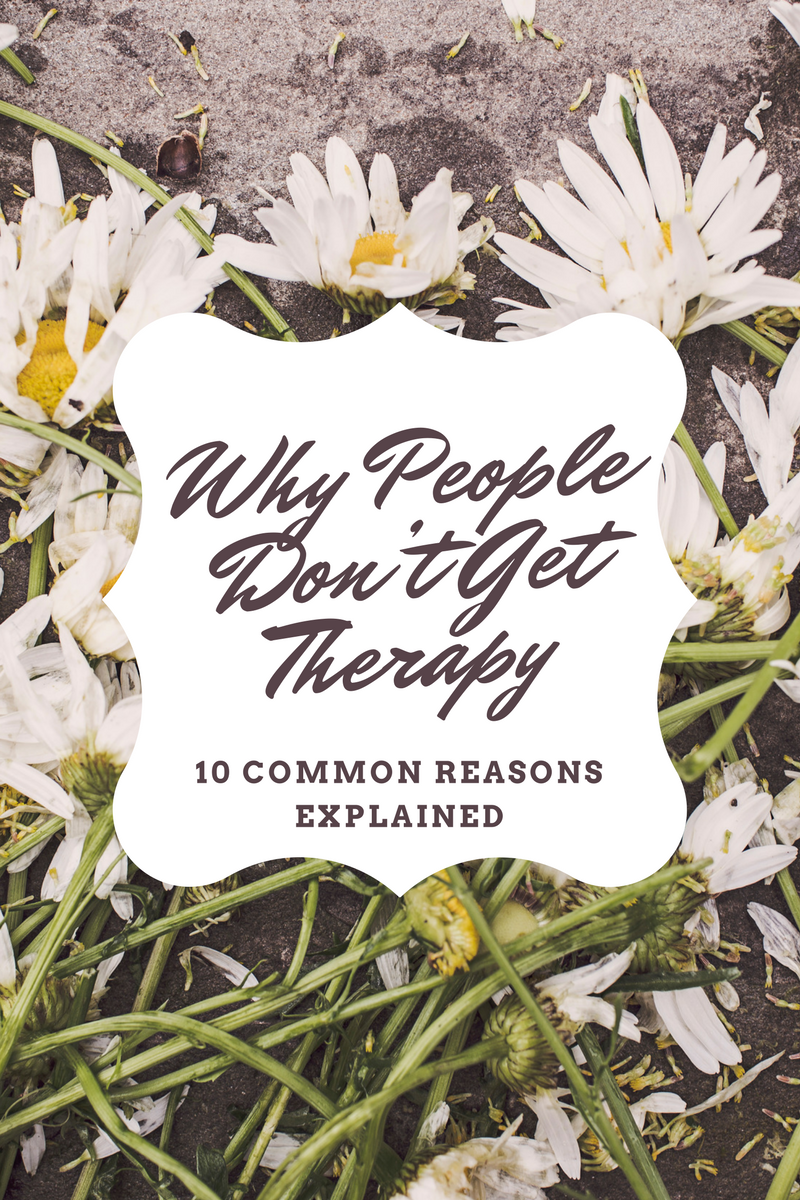
10 Reasons People Don’t Attend Therapy
You may have considered going to therapy at some point in your life. You may have even attended a session or two and then stopped. If your life isn’t where you want it to be, or if you have goals left unaccomplished there are so many reasons to stick it out in on therapy to realize the full benefits. Plus therapy is dose dependent. Research shows the average treatment dose required to see progress is 8-10 sessions per treatment issue.
Therapy can help you develop new perspectives and give you skills and tools to improve your mood, outlook, and relationships. Below we’ll challenge some common assumptions about therapy that keep people out of therapy and stuck stuck stuck.
1. I can take care of my issues alone.
No one does this life alone my dear. Consider therapy one of the best ways for you to take charge and accomplish your goals. Therapy can help to provide the tools necessary for you to manage challenges and stay on track.
2. I can just talk to my friends or family about my issues.
Your friends and family love you and tell you what you want to hear. A good therapist can offer unbiased, research based, feedback tailored to your specific situation.
3. If I need therapy, the problem is probably hopeless.
Nothing is permanent, at least it doesn’t have to be. We all find ourselves feeling stuck. A therapist can help you step forward from even your lowest point.
4. I’ll just take medication.
Medication interventions are most effective in conjunction with evidence-based individual therapy. Overwhelming research has shown that the combination of therapy and medication results in the best outcomes.
5. Therapy is for people who have serious issues. Mine aren’t that bad.
If you’re considering therapy you probably could benefit from being in here. Any issue that prevents you from enjoying life is serious. Therapy is for anyone and everyone who wants to make a change. We are all a work in progress. Wherever you are therapy can help guide you to your best self.
6. It will be uncomfortable.
Probably, but some of the most significant and meaningful changes in our lives arise when we challenge ourselves to step outside our comfort zone. Keep in mind, your therapist is a trained professional who has your best interests in mind. Most people end up feeling quite relieved after the first session. It’s not as uncomfortable as people expect. You’ll spend some time getting to know each other so that delving into deeper discussions will begin to feel more natural.
7. I can’t afford therapy.
Cost is often a barrier in treatment. In a perfect world therapy would be free for all! Keep in mind that your mental health is an important aspect of your overall health, and should receive the same level of attention and care. For this reason, many health insurances cover some of the cost of counseling, often leaving you with a copay. For those who are not covered by insurance, there are varied self-pay rates and you can also use your HSA or flex spending account. While paying out of pocket may require budgeting funds, consider your wellness an investment that will pay you back 100 times over.
8. I don’t have the time.
Lies. 😉 In order to be your best self and give the best of yourself to others, your self-care must be a priority. Therapists have varied schedules, some offer morning, afternoon, evening, and even weekend appointments. The practice administrator and/or therapist will do their best to work with your schedule to assure you are receiving consistent care when you need it.
9. I don’t want people to know I am seeing a therapist.
The only people who will know are those you to choose to share this decision with. Your conversations with your therapist are confidential and are protected by HIPAA. And remember if you see someone you know in the waiting room, they are in the waiting room too.
10. Been there, done that. Counseling didn’t work for me.
That’s like taking one dose of medicine and wondering why you’re still sick. There may be various reasons counseling didn’t work for you in the past, but this does not mean it won’t ever be helpful. Therapy is dose-dependent. We often hope for a “quick fix”, but working through difficult issues takes time and patience, and an open, honest relationship with your therapist. Talking about hard stuff is hard. Discussing unpleasant or painful feelings, and avoid or leave therapy.
Sometimes it just isn’t a therapeutic match made in heaven. Or we outgrow our therapist. They may have been really helpful with certain issues but you may have grown into a different place and could benefit from a fresh pair of eyes. Whatever the reason may be try, try again, your person is out there.

